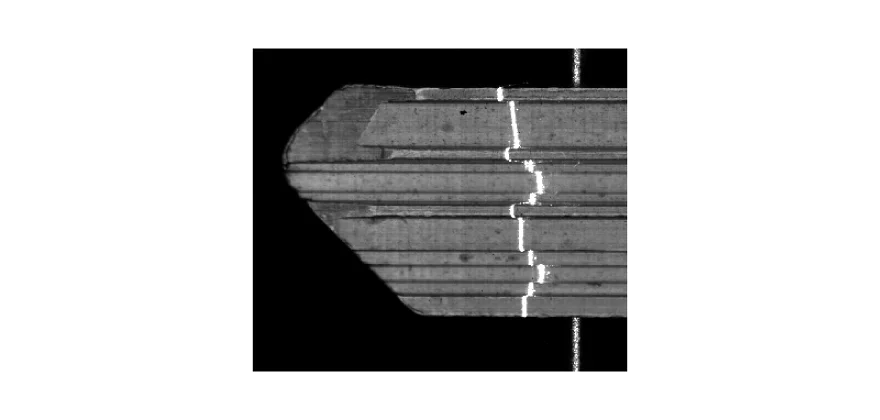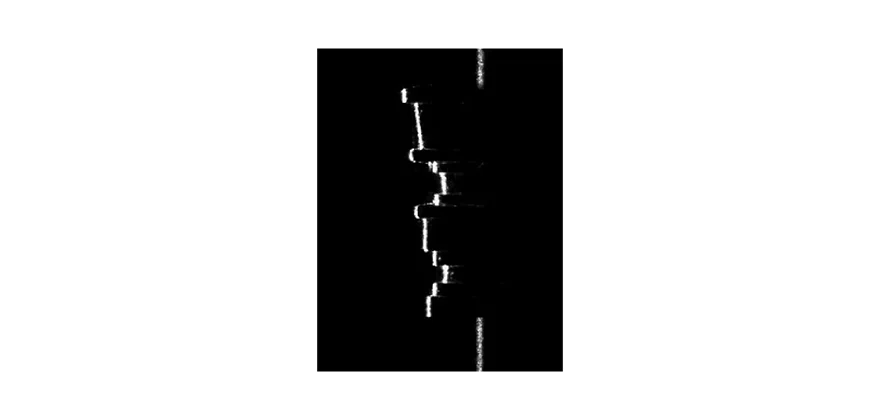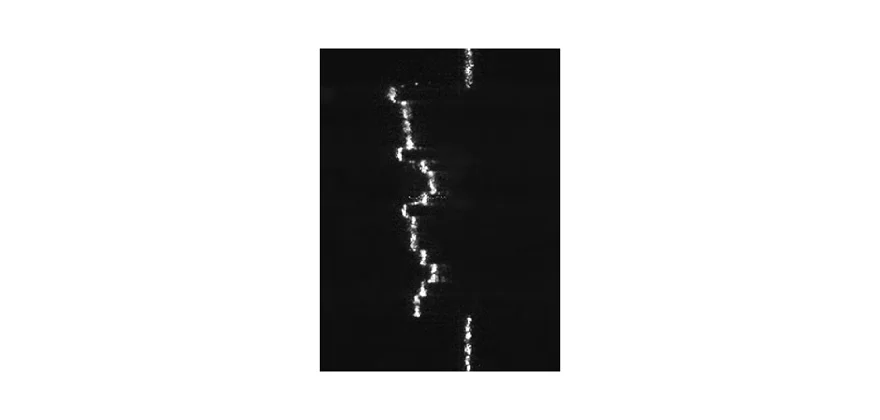Laser speckle
Laser speckle is interference caused by stochastic lateral displacement of the coherent laser radiation upon reflection from a rough surface. Laser speckle disturbs the edge sharpness and homogeneity of the imaged laser line.
The granularity of the laser speckle depends on the aperture setting of the objective used to image the laser line.
Laser speckle reduction
A substantial reduction in the speckle effect is achieved by:
- choosing large lens apertures/small aperture numbers for the objective, which improves depth discrimination but at the expense of depth of focus,
- altering the distance between the object and the sensor, which is most convenient when a scanning measurement is being performed anyway, such as profile measurement of railroad tracks while the train is moving,
- using a laser beam source with decreased coherence length, such as a superluminescent diode or laser of the LNC-Series.

Laser Speckle and Laser light sectioning
3D profiling by use of laser light sectioning: Measured object with generated laser line, at an incident angle of 60° and with an additional dome illumination of the object.
The generation of laser speckle cannot be avoided as the principle of laser light-sectioning relies upon the imaged surface being roughly textured and diffusely reflecting optically.

Large Aperture
Object imaged with a large aperture, f/# 2.8. The imaging lens acts as a spatial frequency filter, restricting the measurement to a shallower dissecting plane and minimizing the speckle effect.

Small aperture
Object imaged with a small aperture, f/# 22, which increases speckle and granularity, bringing uncertainty in the contour of the line.

Laser Modules of series LNC
The low noise laser diode modules (Series LNC) from Schäfter+Kirchhoff exhibit reduced power noise and reduced coherence length as a result of internal RF-modulation. The low noise (<0.1% RMS, @<1 MHz) and lack of mode hopping make these laser diode modules ideal for particle measurements or advanced medical and biotechnological applications.
- Low noise laser module (<0.1% RMS,@ 1 MHz)
- Reduced coherence
- Mode hopping free laser operation
- Internal RF-modulation